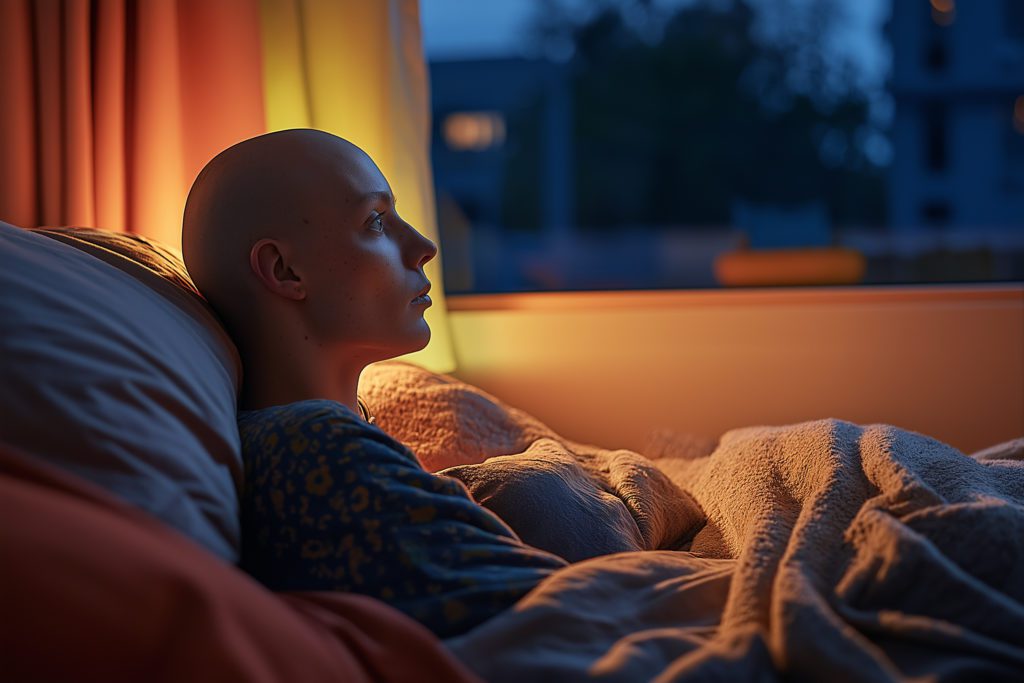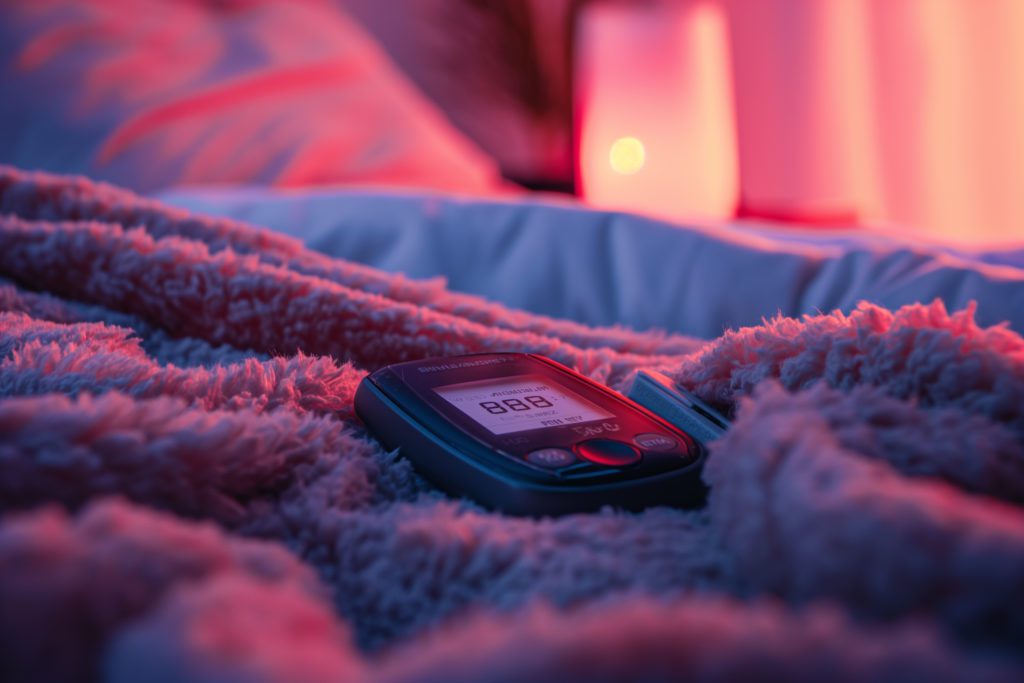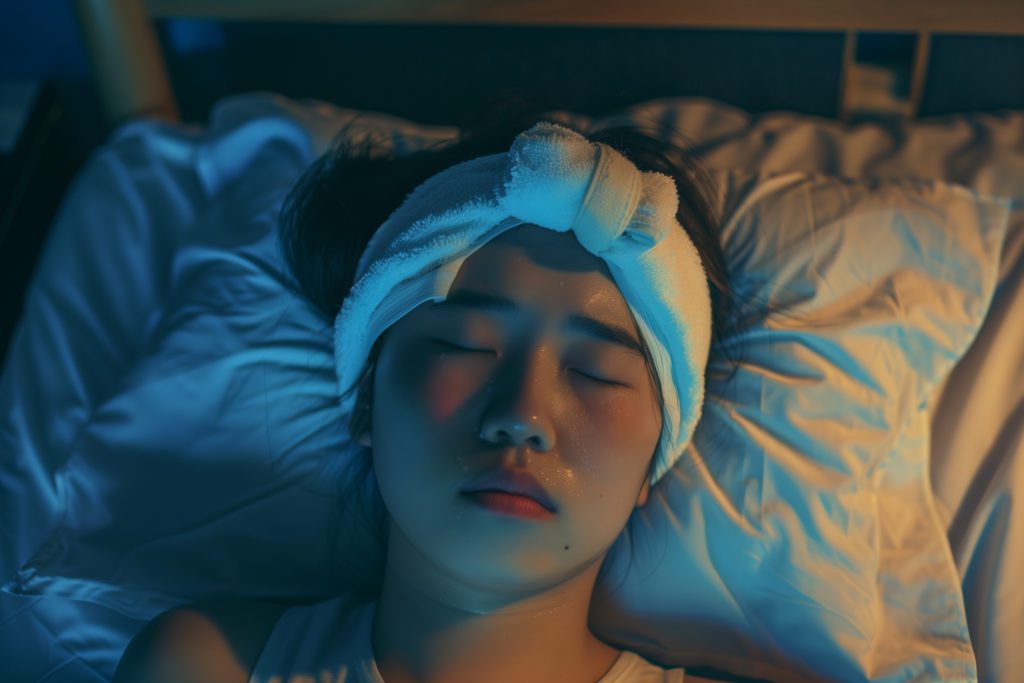
Chemotherapy and Sleep: Strategies to Help You Rest
Chemotherapy can affect your sleep through its side effects and added stress. Explore strategies to sleep better while going through cancer treatment.

Fatigue is a common side effect of chemotherapy, sometimes because chemotherapy can be taxing and other times because treatment can cause anemia. However, if you’re feeling tired during your cancer treatment, it may also be because you’re having a hard time getting enough sleep at night.
Chemotherapy itself, as well as the stress that comes with a cancer diagnosis, may be affecting your nights, but there are strategies that you can implement to sleep better.
What Causes Chemotherapy-Related Sleep Problems?
Studies show that up to half of all those undergoing treatment for cancer have problems with their sleep.
Two of the greatest contributors to poor sleep while undergoing treatment include the treatment’s side effects and stress from your diagnosis.
Side Effects of Treatment
Chemotherapy can cause some unpleasant side effects that may cause discomfort, keeping you awake. For example, nausea, vomiting, and peripheral neuropathy can all make you uncomfortable when you’re trying to sleep.
Those on chemotherapy may also receive steroids as a part of their treatment. For some cancers, including leukemias and lymphomas, steroids are used as a part of the cancer treatment to help reduce inflammation and the body’s immune response, making treatment more effective. They may also be prescribed to help manage the side effects of chemotherapy, with them showing particular success in treating nausea and vomiting that results from chemotherapy.
However, while steroids can help with nausea, they may impact sleep. Studies show that steroids can indirectly cause sleep disorders like insomnia because they disrupt the circadian rhythm. Specifically, this may cause melatonin secretion to be lower, with melatonin a sleepiness-promoting hormone that is produced as the sun sets. When melatonin levels are low, it can be hard to fall and stay asleep.
Stress
Receiving a cancer diagnosis can be a stressful affair, and this can seep into your night. You may be stressed about the disease itself and your likelihood of surviving. You may be worried about how your treatment and the time needed for treatment will affect your family. Money can be another source of stress since cancer treatment is not inexpensive.
All of these sources of stress can make it hard for you to fall asleep at night; instead of drifting off to sleep, you may instead spend hours tossing and turning, the stressful thoughts keeping you up.
In addition to the influence of stress on your thoughts, it can also affect your physiology by raising your heart and breathing rate. When this occurs, you’re in direct opposition to the state your body desires in order to fall asleep, which is another way that stress can keep you awake.
Strategies to Sleep While Undergoing Chemotherapy
Sleep is crucial for your immune system, giving your body a boost to fight what doesn’t belong, including cancer cells.
Furthermore, getting sleep can help you better manage the side effects of chemotherapy. Research has shown that fatigue and disturbed sleep during treatment can negatively impact your quality of life and may cause you to be more likely to have poor psychosocial outcomes and reduce your compliance with treatment. Given the importance of sticking with treatment, getting enough sleep is one way that you can ensure you see your treatment through to its completion, increasing your odds of survival.
Still, knowing the importance of sleep doesn’t necessarily mean that you automatically will meet your sleep goals. There are challenges with sleep when undergoing chemotherapy, but these strategies can help you get more rest:
- Avoid electronics in the bedroom. Electronics give off blue light, which can suppress melatonin production. Since steroids can already hinder your melatonin production, you don’t need to add anything on top, so try to avoid electronics in the hour before bed and keep them out of your bedroom when you go to sleep. Instead, fill the time before bed with screen-free activities such as reading, doing a puzzle, or conversing with your loved ones. Journaling is also a great option and has the added benefit of helping to remove stressful thoughts from your mind.
- Remove distractions. Light and noise can keep you awake, feeding into your insomnia. Consider using a sound machine or earplugs to lessen auditory distractions and using blackout curtains or an eye mask to keep your room dark.
- Avoid smoking. Not only can smoking hinder your immune system, but it has also been associated with greater insomnia and shorter durations of sleep. In order to preserve your sleep, consider quitting this habit.
- Limit caffeine intake. Caffeine blocks adenosine, a neurotransmitter, from building up in your brain. When adenosine builds up during the day, sleepiness occurs, which is why, by blocking adenosine, caffeine helps to keep you alert. However, consuming caffeine too close to bedtime can cause you to not feel sleepy enough to fall asleep. Avoid caffeine at night, and if you’re sensitive to caffeine, consider drinking caffeinated beverages such as coffee only in the morning.
- Go to bed and wake up at the same time every day. Since steroids can throw off your circadian rhythm, implementing habits that support your circadian rhythm, such as maintaining a sleep-wake schedule, can help to improve your sleep.
- Nap carefully. If you’re tired, naps can help you get through the day, but you don’t want them to interfere with your nighttime sleep. Keep your naps to 30 minutes or less, and avoid napping in the late afternoon.
- Talk about your fears and worries. A cancer diagnosis can bring along many concerns that, if bottled up, can keep you from falling asleep at night. It can be helpful to discuss your fears so that you can work through them, whether you talk with a friend, family member, or a therapist.
- Try deep breathing. If you’re feeling stressed as you’re trying to fall asleep, consider learning some deep breathing techniques, such as the 4-7-8 breathing technique, to help calm your body and mind.
It’s important to note that while you’re undergoing cancer treatment, it may not be safe to take sleep aids, as they may interfere with your treatment. Before taking any, even over-the-counter varieties, check with your doctor to ensure that they are safe to take. Sleep is important, but you don’t want to sabotage your treatment.
Chemotherapy can affect your nighttime sleep through its side effects and added stress, but you can try the above strategies to sleep better and maintain a good quality of life, even as you undergo cancer treatment.

Written by
Jessica G
Medical writer freelancer who has written hundreds of articles on varying topics. Masters of Engineering degree in Biomedical Engineering.
Download Pillow
Get help
Press & News
Legal
Connect
X (Twitter)
Company
Copyright © Neybox Digital Ltd.



